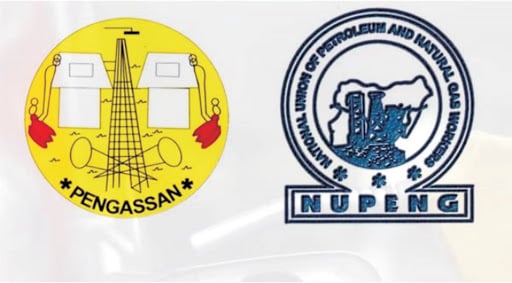Two of Nigeria’s influential oil sector unions have strongly opposed the Federal Government’s reported plans to divest significant stakes in joint venture assets managed by the Nigerian National Petroleum Company Limited.
The Petroleum and Natural Gas Senior Staff Association of Nigeria and the Nigeria Union of Petroleum and Natural Gas Workers on Tuesday warned that such moves could destabilise the economy, weaken the oil industry, and jeopardise the welfare of workers.
At a joint press briefing in Abuja, PENGASSAN President, Festus Osifo, and his NUPENG counterpart, Williams Akporeha, rejected the proposal to cut government stakes in JV assets by as much as 30–35 per cent. Currently, the Federal Government holds between 55 and 60 per cent of such assets through NNPCL.
According to the unions, the planned sale would generate quick cash but at the expense of Nigeria’s long-term economic security. They cautioned that reducing government holdings in critical oil assets could bankrupt NNPC, impair its ability to meet obligations such as salaries and welfare packages, and shrink its contributions to the national budget.
“The government wants to reduce its stake in these assets. In some cases, they are talking of selling up to 35 per cent. But we say no.
You cannot mortgage the future of Nigerians for temporary gains,” Osifo declared.
The controversy follows President Bola Tinubu’s directive last month for a reassessment of the NNPC’s 30 per cent management fee and 30 per cent frontier exploration deduction under the Petroleum Industry Act.
Tinubu, in charging the Economic Management Team led by Finance Minister Wale Edun, stressed the need to optimise government savings, streamline deductions from the Federation Account, and enhance fiscal discipline in a time of global financial strain.
But oil unions said the administration’s latest policy moves, including talk of amending the PIA, could create more uncertainty in a sector that only recently secured a comprehensive reform law after decades of delays.
Osifo warned that further divestment would cripple NNPC’s ability to sustain its operations. He recalled previous divestments by international oil companies, including ENI’s Agip subsidiary, ExxonMobil, and Shell, whose Nigerian assets were acquired by domestic firms such as Oando and Seplat.
“The NNPCL manages JV assets on behalf of the Federation. Every oil well belongs to the Nigerian people collectively, not just the Federal Government. If these stakes are sold, the federation loses, and the national oil company will be too weak to deliver,” he argued.
The unions also accused the Ministry of Finance of attempting to remove the Ministry of Petroleum from joint ownership of NNPC—an act they described as a backdoor hijack of the company. They argued that the proposed amendments would strip NNPC of its core national role, scare away investors, and send negative signals about Nigeria’s policy consistency.
“The PIA was passed after years of struggle. Investors are just beginning to adapt to it. Now, the government wants to amend it again? That is a dangerous signal,” Akporeha said. According to him, every serious oil-producing nation protects its national oil company. “Here, we are doing the opposite, stripping ours of its strength,” he added.
The unions demanded that President Tinubu personally halt the divestment plan and rein in officials pushing for changes. They specifically urged him to call the Minister of Finance, the NNPCL Board Chairman, and the Group Chief Executive Officer of NNPCL to order.
“If these proposals succeed, Nigeria will struggle to generate the revenue required to fund its budget. This is a recipe for crisis, and we will resist it,” Osifo maintained.
While the unions stopped short of announcing a strike, they issued a strong warning that they would “fight with everything” to prevent the sale.
“Whoever mooted this idea, whether from the Ministry of Petroleum, Ministry of Finance, NNPCL, or even the Presidency itself, we reject it 100 per cent. It will make NNPCL bankrupt in a few years. We will not allow that to happen,” Osifo insisted.
Akporeha further criticised the government’s inconsistency, noting that the PIA, enacted barely three years ago, had not been given enough time to stabilise before fresh amendments were being considered.
“When laws are inconsistent, they scare away investment. The investors are just beginning to understand the PIA, and suddenly government wants to change it again,” he said.
The oil unions’ rejection adds another layer of tension to the government’s economic reform drive. While the administration seeks quick fixes to address fiscal pressures, organised labour insists that selling off critical national oil assets would mortgage the country’s future.
Both PENGASSAN and NUPENG have urged President Tinubu to prioritise national interest over short-term gains, warning that any move to weaken NNPCL could erode Nigeria’s economic foundation and trigger industrial unrest.
punch.ng
FOLLOW US ON:
FACEBOOK
TWITTER
PINTEREST
TIKTOK
YOUTUBE
LINKEDIN
TUMBLR
INSTAGRAM


























